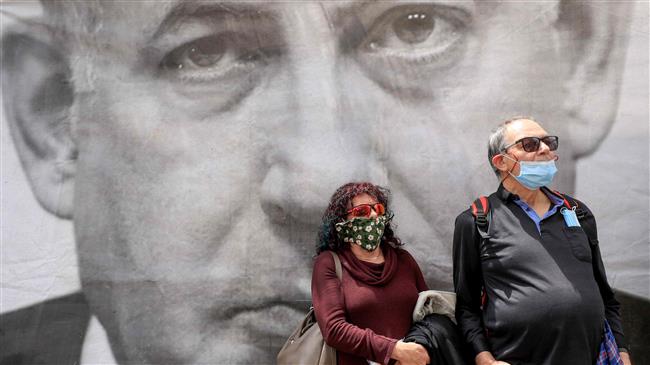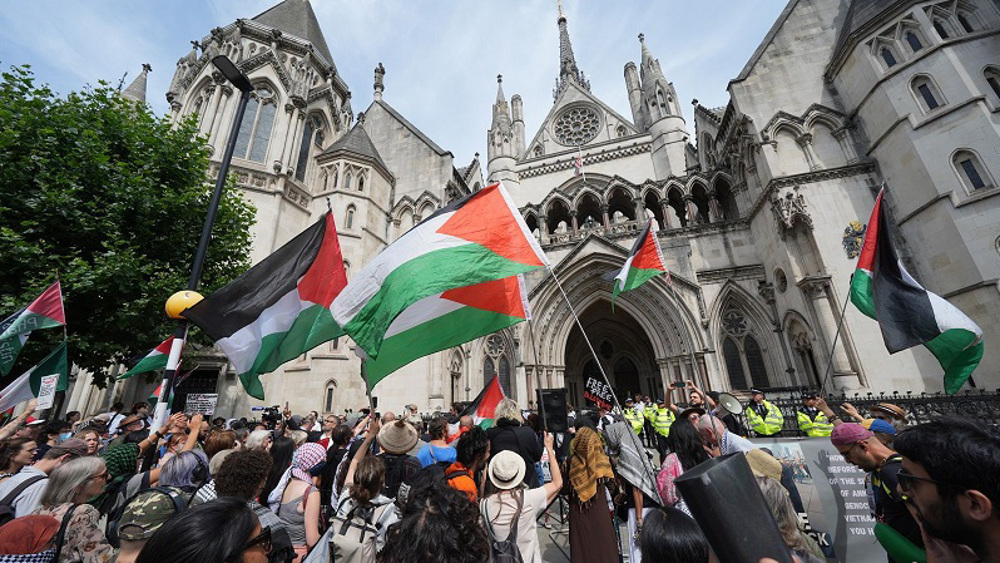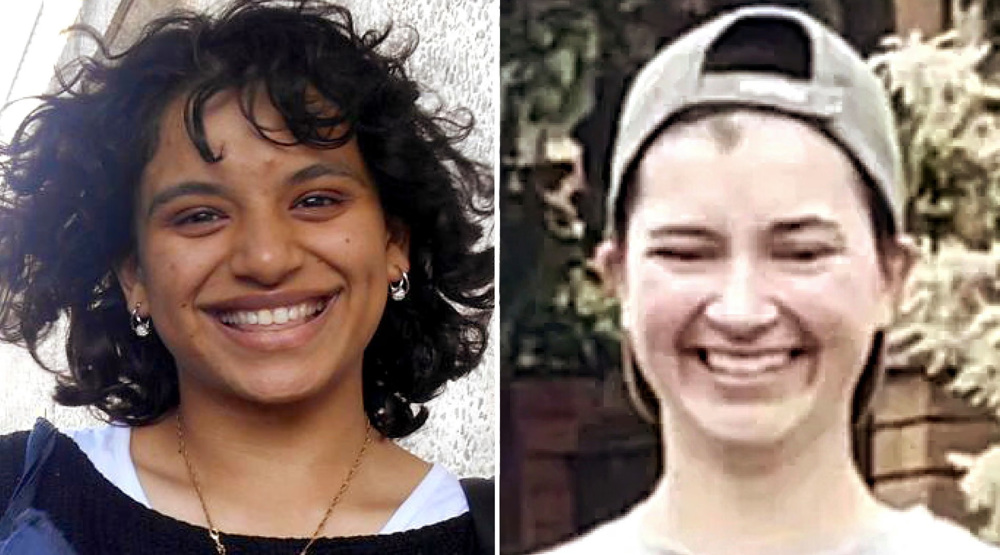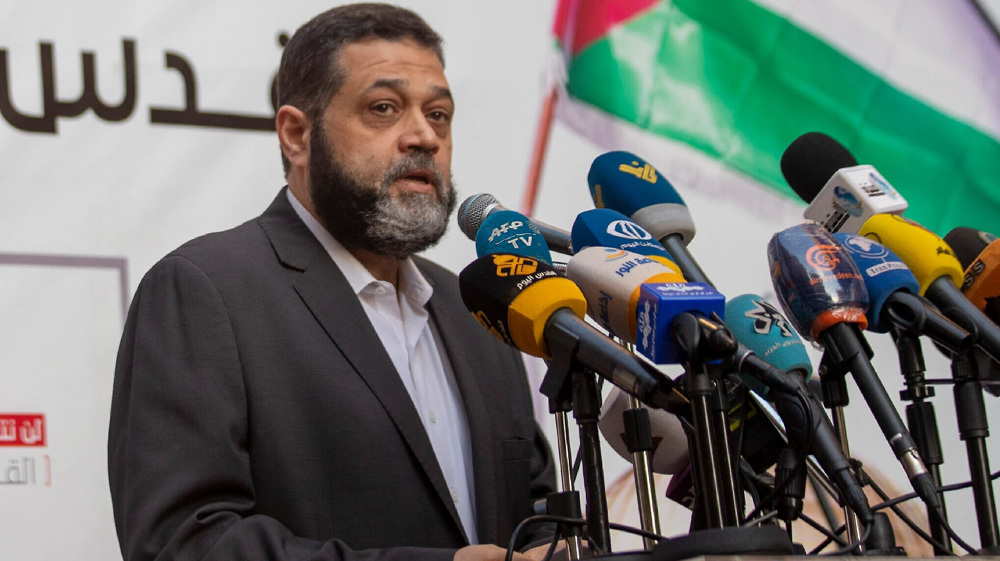Netanyahu’s corruption charges, annexation plan spell the beginning of the end for Israel
By Robert Inlakesh
(Robert Inlakesh is a journalist, writer and political analyst, who has lived in and reported from the occupied Palestinian West Bank. He has written for publications such as Mint Press, Mondoweiss, MEMO, and various other outlets. He specializes in analysis of the Middle East, in particular Palestine-Israel. He also works for Press TV as a European correspondent.)
Could Israel’s current Prime Minister be overstepping, falling, and dragging down the entire Israeli regime slowly down behind him?
Israeli Premier Benjamin Netanyahu has just appeared before an Israeli court in occupied Jerusalem (Al-Quds), facing corruption and bribery charges, amid Israeli protests both against him and in his favor. Simultaneously, as the case against him has been ongoing, Netanyahu has also continued to push his case to annex vast swaves of territory in the illegally occupied West Bank.
Israel’s political scene from within, spelling disaster for the whole regime?
Israeli politics have appeared to have come a long way since the establishment of the Zionist regime in 1948, on top of 78% of historic Palestine. In 1948 the newly crowned Israeli Prime Minister David Ben-Gurion led the Mapai Party, which later merged into what became the Israeli Labour Party in 1968.
As part of the Israeli propagandistic depiction of the Party which was promulgated, was the dissemination of the idea that Ben-Gurion’s Party was a left-wing, socialist movement for the workers of the newly formed Israel. However, contrary to that popularly held belief, in the Western world, David Ben-Gurion’s Party never was a socialist movement, nor was it left-wing (or center-left as it is often portrayed), nor was it a Party for all the workers. If anything it could be considered along the lines of National Socialism, due to the fact that it singularly looked to benefit the “Jewish nationality” - a concept which was at the time newly popularized by the European Zionist movement - and completely discarded the rights of its non-Jewish residents.
It’s non-Jewish residents, that it claimed governance over, were of course the Palestinians who managed to survive the ethnic cleansing of Palestine through 1947-49. These Palestinians continued to live inside of the newly established settler colonial entity and were ruled under military law, up until 1966, in a similar way that Palestinians in the West Bank and Gaza were placed under military law following the occupation of the territories in June of 1967.
For a long time Israel has covered up its true right wing, hardline-nationalist face, with the mask of having an electable left-wing, however those days are now over. The Israeli Labour Party, dubbed as left-wing, has not only been significantly weakened in Israel, to the point that it is no longer a main factor in Israeli politics, but it has now formed part of the merger government between Netanyahu’s Likud and Benny Gantz’s Kahol Lavan (Blue and White).
In the eyes of Palestinians and those in the wider region, both the Kahol Lavan Party and the Likud Party, hold little to no tangible difference on the issues pertaining to the Palestinians and Israel’s wider foreign policy. This is now becoming very clear to the wider world also, as the so-called center-left opposition Party, headed by war criminal Benny Gantz, has come together with Netanyahu’s far-right Likud Party in order to share power. Netanyahu’s close relationship with Donald Trump has shown many in the Western world where the Israeli political scene is centered. And now, the only true opposition (Gantz) to the current Prime Minister (Netanyahu), who is currently being hurled in and out of courtrooms and then on to press conferences in which he curry favors to US President Donald Trump, has been exposed as being willing to cosign the controversial current PM and give him a further two years in office.
What this has also done, besides showing the wider world what is going on inside Israel, is that it has also begun to create a rift in Israeli society itself. With protesters packing the streets to call out Benjamin Netanyahu, as the “Crime Minister”, many of those protesting had been former Gantz supporters prior to the power-sharing government which was just announced.
This has paved the way for the leader of the ‘Arab Joint list’, a block of Palestinian Israeli citizen political Party’s, to take advantage of this moment and attempt to reach out to Jewish Israeli’s unhappy with the current Israeli regime led by Netanyahu. Ayman Odeh, the Arab Joint lists leader, took no time to get himself on stage to speak at events condemning the formation of the power-sharing government and has even begun receiving praise from Israeli Jewish people filled with contempt for the Netanyahu-Gantz government.
The Arab Joint list is now also becoming more of a factor in Israeli politics, as t Palestinians have made the calculated decision to vote for Palestinian Party’s in Israel, in order to get them into Israel’s Knesset to attempt to combat right-wing groups from as easily assuming power.
Approximately 20% of Israeli citizen holders are Palestinians, a significant portion of the population which is continually growing. These second class citizens, discriminated against by over 60 laws - including the infamous ‘Nation State Bill’ - passed by the Israeli Knesset, pose a significant threat to Israel’s racist regime's stance which characterises itself as being of the Jewish people and only for the Jewish people. The reason they pose such a threat is because of the sheer number of them (Palestinians) and also the fact that through the Arab Joint list seem to be drawing more Jewish Israelis to listen to them.
Although the majority of the Israeli Jewish population are right-wing and overwhelming support annexation of Palestinian land, it only takes a small percentage of the population to fight back for equal rights and cause a real problem for the regime in the future.
The annexation of West Bank land
Benjamin Netanyahu, despite appearing in court, chose to place himself in front of the cameras on the same day, in order to stress the importance of the historic opportunity to annex vast portions of the West Bank, urging the process to begin in July.
There had been over 60 different bills and plans put forward to the Israeli Knesset, on annexing West Bank territory since 2016 alone, however all but three of these initiatives were as detailed as Netanyahu’s recent proposal which presents a map to enable us to visually see what is planned on being stolen.
We know from Netanyahu’s conceptual map, that his plan for the Jordan Valley and Northern Dead-Sea annexation constitutes a land grab of at least 20.5% of the West Bank. Netanyahu also wishes to annex the illegally established settlements and territory eaten up by its illegally built separation wall, essentially meaning that - when roads and all territories are included - Israel will essentially have annexed just shy of half the West Bank.
It is not likely to fathom a circumstance under which Palestinians will not rise up against this move of official annexation, hence there will likely be a large Palestinian response to such an illegal land grab.
The President of the Palestinian Authority (PA), Mahmoud Abbas, has officially sworn to tear up all agreements with Israel and the US in response Israel’s actions. If Abbas does indeed follow up on his intentions, this could cause a situation - unseen since the days of Yasser Arafat during the second Intifada (uprising) - where Palestinian Authority forces could be given the orders to shoot Israeli occupying forces entering PA governed territories. It would also mean that the Oslo Accords of 1993 would be abandoned, scrapping recognition of Israel, as well as security cooperation and ties with the occupying entity.
If the PA gets behind a new Intifada, Israel will once again have to pay a price for its occupation of the West Bank and will be back to square one, meaning a similar situation to which it faced during the first Intifada beginning in 1987.
The state of Israeli politics and the regime headed towards further land confiscation, may take a step too far this time and pave the way to the beginning of the end for the apartheid regime. If it does continue in its current trajectory, then with one step in the wrong direction, Israel could severely damage its ability to maintain the status quo, in which Israeli Jews hold superiority over the indigenous Palestinian population.
(The views expressed in this article do not necessarily reflect those of Press TV.)
Iran's Rahman Amouzad named world's 'most dominant’ freestyle wrestler of 2025
VIDEO | Iran works to boost solar power production
Explainer: How Kowsar 1.5 satellite fits into Iran’s push for sovereign space infrastructure
US imposes visa bans on ex-EU commissioner, anti-disinformation activists
Iran rejects coercion, says no to inspection of damaged nuclear sites
Over 150 Iranian MPs condemn US 'maritime piracy' in Caribbean
Why Iran’s reverse engineering prowess is giving jitters to American war hawks
Iran condoles with Libya over death of army chief in plane crash










 This makes it easy to access the Press TV website
This makes it easy to access the Press TV website